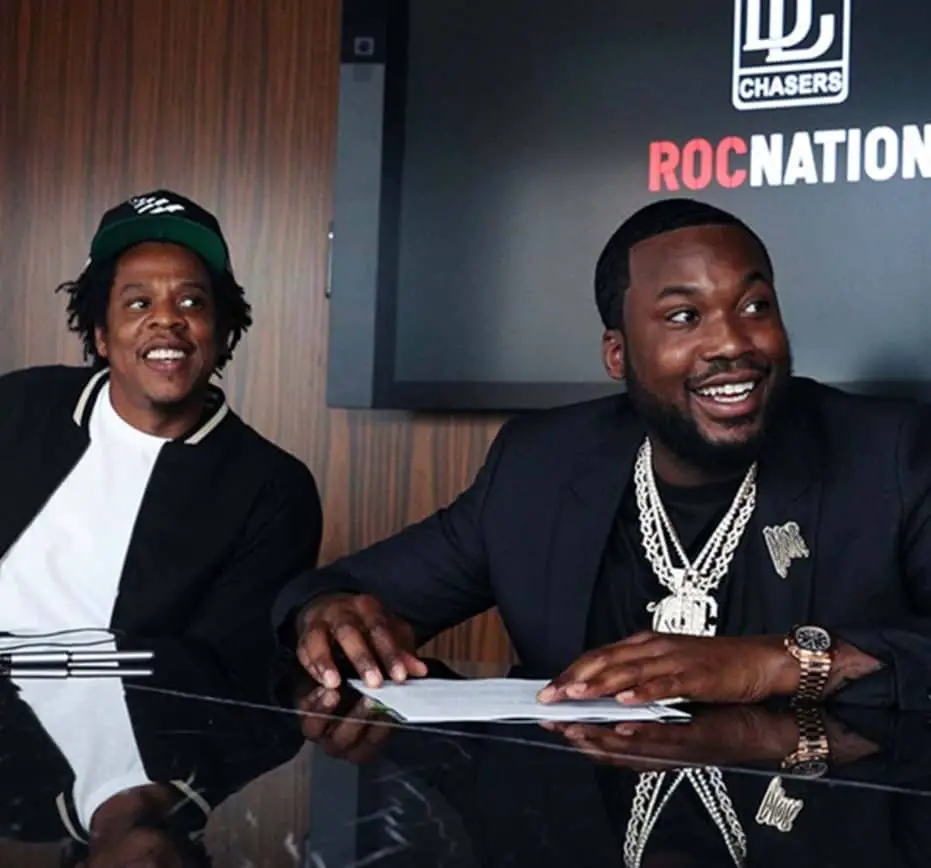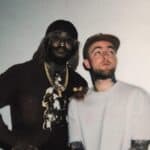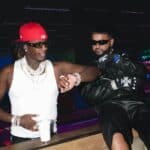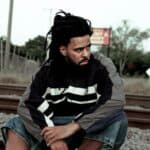Jay-Z, Meek Mill and more backs a bill to stop rap lyrics use in Courts.
Jay-Z and Meek Mill are pushing for a law that would stop prosecutors from taking rap lyrics as evidence against rappers. The letter for the proposed law [“Rap Music on Trial” (S.7527/A.8681)] is also signed by the likes of Big Sean, Fat Joe, Killer Mike, Kelly Rowland, Robin Thicke and more.
“This is an issue that’s important to (Jay-Z) and all the other artists that have come together to try to bring about this change,” Jay-Z’s lawyer Alex Spiro told Rolling Stone. “This is a long time coming. Mr. Carter is from New York, and if he can lend his name and his weight, that’s what he wants to do.”
“Our lyrics are a creative form of self-expression and entertainment – just like any other genre,” said Fat Joe. “We want our words to be recognized as art rather than being weaponized to get convictions in court. I hope the governor and all the lawmakers in New York take our letter into consideration, protect our artistic rights and make the right decision to pass this bill.”
Jay Z, Meek Mill, and many more are pushing for a law to stop prosecutors from using rap lyrics in attempts to prove guilt during criminal trials
📸: Kevin Mazur/ GettyImages pic.twitter.com/CX0s8QJOV3
— My Mixtapez (@mymixtapez) January 19, 2022
Jay-Z lawyer Alex Spiro wrote a letter with the University of Richmond Professor Erik Nielson. “Rather than acknowledge rap music as a form of artistic expression, police and prosecutors argue that the lyrics should be interpreted literally — in the words of one prosecutor, as ‘autobiographical journals’,” reads Spiro and Nielson’s letter. “Even though the genre is rooted in a long tradition of storytelling that privileges figurative language, is steeped in hyperbole, and employs all of the same poetic devices we find in more traditional works of poetry.”
“This reform is urgently needed,” the new letter from Spiro and Nielson, signed by the influential artists, reads. “Rather than acknowledge rap music as a form of artistic expression, police and prosecutors argue that the lyrics should be interpreted literally – in the words of one prosecutor, as ‘autobiographical journals’ – even though the genre is rooted in a long tradition of storytelling that privileges figurative language, is steeped in hyperbole, and employs all of the same poetic devices we find in more traditional works of poetry.” The new legislation from Senator Brad Hoylman (D-Manhattan), Senator Jamaal Bailey (D-The Bronx), and Assemblymember Catalina Cruz (D-Queens) would amend state law to limit the admissibility of a defendant’s music or other “creative expression” as evidence shown to a jury. According to the draft legislation, the bill would set a new high bar compelling prosecutors to provide “clear and convincing evidence” that a defendant’s creative expression, such as a rap song, is “literal, rather than figurative or fictional.”
Jay-Z lawyer Alex Spiro wrote a letter with the University of Richmond Professor Erik Nielson. “Rather than acknowledge rap music as a form of artistic expression, police and prosecutors argue that the lyrics should be interpreted literally — in the words of one prosecutor, as ‘autobiographical journals’,” reads Spiro and Nielson’s letter. “Even though the genre is rooted in a long tradition of storytelling that privileges figurative language, is steeped in hyperbole, and employs all of the same poetic devices we find in more traditional works of poetry.”
We often see rap songs being used in the trials, and previously, the late Drakeo the Ruler was incarcerated after prosecutors used the lyrics of his 2016 song ‘Flex Freestyle’.
The proposal would restrict the use of “creative expression” as proof and require lawyers to provide “clear and convincing evidence” that such art is not just imaginary. The proposal was made by Senators Brad Hoylman, Jamaal Bailey, and Catalina Cruz of the Assembly.
Hoylman gave the examples of David Byrne declaring himself a “psycho murderer” and Johnny Cash singing that he “shot a man in Reno just to watch him die,” without anyone taking them literally. However, there is a record of hip-hop musicians getting their verses exploited against them. Using the lyrics from his songs as evidence in his prosecution, the late Drakeo the Ruler was sentenced to three years in jail. “Presuming a defendant’s guilt based solely on musical genre or creative expression is antithetical to our foundational rights and perpetuates the systemic racism that is embedded into the criminal justice system through discriminatory conflations of hip-hop and rap with criminality,” Bailey said.








